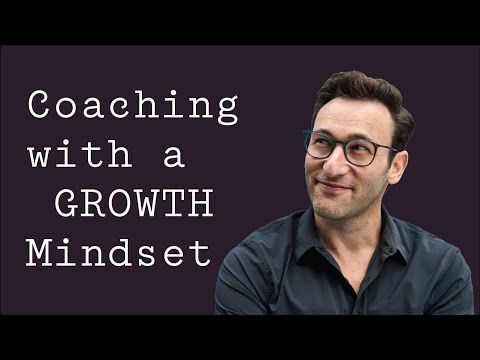In today’s whirlwind business environment, mentorship for business leaders is more important than ever. Having a knowledgeable guide to help navigate the challenges and opportunities not only accelerates an executive’s growth but also enhances organizational success. Mentorship for business leaders is a powerful tool, providing insights and guidance that propel emerging and seasoned leaders to new heights.

Why Mentorship Matters in Business Leadership
Mentorship isn’t just a passing conversation—it’s a dynamic relationship that sees both parties grow. Recent studies have found that those engaged in mentorship are five times more likely to snag that coveted promotion. Imagine the ladder you could climb with a mentor showing you the ropes. It’s a game changer; just ask the Harvard Business Review. Leaders supported by mentors often develop stronger skills, expand their networks, and achieve greater career advancements. For instance, the mentoring relationship between Sheryl Sandberg and Larry Summers showcases how trust and vision can propel careers.
Mentorship for business leaders means embracing growth and resilience. Successful mentors foster an environment where honesty and ambition blend seamlessly. This is more than a job requirement; it’s about creating spaces where leaders can thrive, share ideas confidently, and achieve the results they’ve always dreamed of. So, why not take a leap of faith? Embrace mentorship, and watch as your leadership potential unfolds.

The Anatomy of Successful Mentorship Relationships
Behind every successful leader is a mentor who provided wisdom and direction. Take Sheryl Sandberg and Larry Summers, for instance. Their relationship blossomed through mutual respect and a shared eagerness to innovate. Such mentorships teach us valuable lessons about trust, confidentiality, and clear goals. Essential components include:
Consider Oprah Winfrey, who praises Maya Angelou’s influential mentorship in shaping her career and vision. There’s no question—successful leaders benefit immensely from mentorship, avoiding the pitfalls of going it alone.
The beauty lies in the subtle nuances of this relationship. Much like a well-choreographed dance, effective mentorship hinges on understanding each other’s rhythms and perspectives, thus cultivating a partnership that blossoms over time.

| Aspect | Description |
| Definition | Executive mentoring is a formal training process providing guidance to senior executives and new leaders for effective career development. |
| Purpose | To support career development, enhance leadership skills, provide insights, and expand professional networks. |
| Benefits for Mentees | – Navigates leadership complexities – Develops critical skills – Expands professional networks – Improves confidence and self-esteem |
| Benefits for Mentors | – Encourages self-reflection – Keeps them updated on industry trends – Enhances leadership skills by teaching and guiding others |
| Key Components | – Availability: Being present for the mentee when needed – Analytic Listening: Understanding and analyzing the mentee’s challenges – Active Listening: Engaging fully with the mentee’s perspective |
| Common Challenges | – Overlooking personal need for mentorship – Finding the right mentor match – Balancing work and mentorship time commitments |
| Best Practices | – Employ the three A’s of mentorship (Availability, Analytic, Active Listening) – Ask the right questions and discuss pertinent topics – Recognize the mutual benefits of the relationship |
| Outcomes | – Enhanced leadership abilities – Stronger leadership pipeline within organizations – Increased job satisfaction and reduced turnover |
| Recommendation | Even seasoned leaders should seek mentorship to maintain and grow their leadership skills. Great leaders need great mentors. |
The Ripple Effect: How Mentorship Shapes Organizational Culture
The impact of mentorship often transcends individual ambitions, influencing entire organizational cultures. Companies like Google have capitalized on this, embedding mentorship into their philosophy. Their synergy-driven initiatives, such as “Googler to Googler,” foster innovation and satisfaction. How do they achieve this?
Mentorship creates a ripple effect that enhances company culture. Google’s initiatives have not only improved employee satisfaction but have also bolstered retention rates. It’s time more companies took a page from this playbook, making mentorship a defining trait of organizational culture.

Real-World Success Stories of Mentorship
Mentorship can radically change lives—take it from Mark Zuckerberg, who received guidance from the legendary Steve Jobs. Jobs advised Zuckerberg to focus on assembling a strong team and a cohesive work environment at Facebook. This tidbit of wisdom profoundly shaped the company’s trajectory, proving how impactful mentorship can be.
Let’s not forget Oprah Winfrey, whose career was undoubtedly influenced by the mentorship of Maya Angelou. Angelou offered more than guidance; she instilled confidence and vision, helping Oprah soar to new heights. This mentorship exemplifies how profound and lasting mentorship bonds can become.
These stories illustrate the essence of mentorship for business leaders. A good mentor will inspire confidence, providing insights that transform not just businesses, but lives.

Leveraging Technology to Enhance Mentorship for Business Leaders
The digital age has redefined mentorship, bridging physical gaps and bringing together global expertise. Platforms like LinkedIn and Zoom have vastly transformed traditional mentorship by making connections more accessible and flexible. AI-powered tools such as MentorcliQ offer refined matching, ensuring personalized and impactful mentorship experiences.
Technology has become an indispensable ally in mentorship. Whether through virtual meetings or sophisticated algorithms that pair mentors with mentees, the digital revolution allows for more knowledge-sharing and collaboration. Mentors can tap into resources they couldn’t have dreamed of 20 years ago.
By embracing technology, mentorship for business leaders moves beyond geographical constraints, harnessing the power of AI and virtual connections to foster dynamic learning environments.
Assessing and Evolving Your Mentorship Program
Regular assessment of mentorship programs is vital for sustaining growth. Continuous feedback, career progression tracking, and strategic adaptation align mentorship with evolving business needs. Take PepsiCo, for example—its commitment to reviewing mentorship programs to reflect corporate and diversity goals has cultivated a more inclusive leadership landscape.
Effective mentorship requires a hands-on approach, constantly gauging effectiveness through feedback and evaluation. Are the goals clear? Is progress being made? These questions must be on everyone’s lips.
By continuously fine-tuning mentorship strategies, organizations not only nurture thriving leaders but also build flexible, future-ready mentorship ecosystems.
A New Era of Mentorship: The Dynamic Duo of Human and Machine
The mentorship of tomorrow combines human intuition with technological foresight. Artificial intelligence (AI) elevates traditional methods, providing personalized learning paths and real-time insights. The future embraces this hybrid model, melding empathy with digital intelligence to foster visionary leadership.
Imagine pairing AI’s analytical capabilities with a mentor’s nuanced understanding—and voilà! You’ve created a learning supernova for leaders. This infusion of tech doesn’t replace the warmth of human guidance; instead, it enhances learning opportunities.
As executive mentoring evolves, infusing AI creates unprecedented pathways. It offers tomorrow’s leaders a robust toolkit, preparing them to steer organizations with agility and foresight.
Unlock the potential of mentorship for business leaders today. Adopt proven strategies and innovative solutions, and let mentorship drive you and your organization to untold success. Embrace the future of mentorship with confidence—and watch as your leadership flourishes. Now’s the time to seize new opportunities, like diving into venture capital Strategies that align with growth ambitions, or enhancing your leadership Skills training to advance your career. Foster your potential and harness the power of mentorship for unparalleled growth!
Mentorship for Business Leaders: Secrets to Success
Mentorship for business leaders is as essential today as ever, with fascinating facets often overlooked. Did you know that just as the creative process can be a source of inspiration, so too can mentorship? This might remind some of the creative dynamism expressed in one-piece Vans, illustrating how collaboration breathes life into innovation. Much like these unique designs that marry creativity with function, effective mentorship can be the perfect blend of guidance and inspiration, carving new paths for business leaders.
The Art of Mentorship
Delving deeper, mentorship for business leaders is quite akin to branding For public Speakers. Just as public speakers need to craft their brand identity, a business mentor shapes a leader’s professional journey. This crafting involves not merely imparting wisdom but helping mentees develop an identity that resonates with their vision and industry demands. It’s a balance between learning the ropes and customizing one’s own approach, similar to selecting the perfect accessory, like Jojo Bows that express individual style yet fit within broader fashion trends.
Unpredictable Journey
Embarking on a mentorship journey isn’t set in stone. Like the unpredictable nature of the Florida Pick 4 Evening, mentorship is filled with unexpected insights and opportunities. It’s this element of surprise that often yields the most rewarding experiences, encouraging leaders to think outside their conventional parameters. Engaging with a mentor may feel like a gamble some days, with fluctuating interactions akin to shifting mortgage rates, but these variations foster adaptability and resilience in a leader.
A Diverse Palette
Finally, mentorship doesn’t just revolve around learning from one individual. It’s a vibrant tapestry of experiences and skills, reminiscent of building coaching Skills For Entrepreneurs. Leaders benefit from a mentor’s guidance as well as from peers and other role models who add depth to their business acumen. Every interaction contributes to a leader’s palette, refining their skills and broadening their perspective as they navigate the ever-shifting tides of business leadership. In the diverse world of mentorship, leaders find not only support but a source of endless growth and inspiration.

How does mentorship help with leadership?
Mentorship helps leadership by offering aspiring leaders valuable guidance and advice from seasoned leaders. Mentees get to learn the ropes of leadership, develop essential skills, and grow their confidence while expanding their professional networks. It’s like having a seasoned guide to help navigate the tricky paths of leadership roles, ensuring that emerging leaders are well-equipped for future challenges.
How do I find a mentor for my business?
Finding a mentor for your business starts with identifying someone whose experience and values align with your own goals. Networking events, industry conferences, and professional groups are great places to connect with potential mentors. It’s important to approach them with a clear vision of what mentorship you’re seeking and how it could be mutually beneficial. Remember, relationships are key, so it’s more about building a connection than just asking for mentorship right out of the gate.
What are the 3 A’s of mentorship?
The three A’s of mentorship are being available, analytic, and active listeners. Mentors should be accessible to their mentees, providing guidance when needed. They should also be skilled at analyzing situations to offer sage advice and help mentees grow. Most importantly, active listening creates understanding and fosters open communication, which is crucial for the mentee’s development.
Do CEOs need mentors?
CEOs absolutely need mentors because even at the top, there’s still room for growth and new challenges to tackle. A great mentor can offer fresh perspectives, hold a CEO accountable, and be the sounding board that every leader needs. Despite their position, CEOs benefit from having someone in their corner who can provide guidance and unbiased advice, helping them lead more effectively.
Do leaders need mentors?
Leaders do need mentors, even though they’re often expected to guide others. Mentors can offer a fresh perspective, provide constructive feedback, and help navigate complexities that come with leadership roles. Having a mentor ensures that leaders continue to grow and adapt, maintaining their effectiveness and staying ahead of the curve in their leadership journey.
Why is mentoring so powerful?
Mentoring is so powerful because it creates a space for knowledge transfer, personal growth, and development. Mentors provide valuable insights from their own experiences, helping mentees avoid common pitfalls and achieve their goals more efficiently. It’s a two-way street, enriching both mentees and mentors through a fulfilling exchange of ideas, fostering personal and professional growth.
How much does a business mentor cost?
The cost of a business mentor can vary greatly depending on their experience, reputation, and the nature of the mentorship. It could range from a few hundred to several thousand dollars per month. Some mentors might offer volunteering services or exchange their guidance for other professional services, depending on the relationship and mutual benefits.
Do you pay a mentor?
Sometimes you do pay a mentor, especially if you’re working with a professional mentoring service or a well-established figure in a formal arrangement. However, not all mentorships require payment; many are based on a mutual understanding and shared benefits. It’s essential to clarify expectations from the outset to ensure both parties are on the same page regarding compensation or favors in lieu of payment.
How do you ask CEO for mentorship?
When asking a CEO for mentorship, approach them respectfully and with a clear explanation of why you’re seeking their guidance. Highlight what you admire about their career and how you believe their insights could help you achieve your goals. It’s imperative to be concise and to the point, showing that you’ve done your homework and respect their time.
What are the 5 C’s of mentoring?
The five C’s of mentoring are clarity, commitment, communication, connection, and collaboration. Clarity involves setting clear expectations and goals. Commitment ensures both parties actively participate. Communication keeps the relationship open and effective. Connection allows for genuine interactions, while collaboration fosters a partnership where both can learn and grow.
What are the golden rules of mentoring?
The golden rules of mentoring involve building trust, active listening, respecting confidentiality, and offering constructive feedback. A mentor should focus on empowering the mentee by encouraging them, helping them develop confidence, and focusing on their growth areas. Being patient and maintaining an open line of communication are also crucial elements of a fruitful mentoring relationship.
What is a mentor checklist?
A mentor checklist might include setting specific goals, establishing a regular meeting schedule, defining clear expectations and boundaries, and regularly assessing progress. It’s also good to note any specific areas you’d like to focus on, ensuring both parties are in sync regarding what the mentorship will entail and how success will be measured over time.
How to find a CEO mentor?
To find a CEO mentor, start by identifying industry leaders you admire and who align with your goals. Networking events, executive groups, and even professional platforms like LinkedIn can be great places to establish connections. It’s important to approach with genuine interest, clearly articulating why you’d value their mentorship, and how you believe the relationship could be mutually beneficial.
What mentors do not do?
Mentors should not dictate what decisions their mentees should make or expect them to follow their every word without question. Instead of taking charge, mentors should empower mentees to make their own decisions and learn from their experiences. The role of a mentor is to guide and advise, not to micromanage or control their mentee’s journey.
Do billionaires have mentors?
Yes, even billionaires often have mentors because wealth doesn’t equate to having all the answers. Successful individuals recognize the value of continued learning and benefit from the wisdom and perspective that a mentor brings. Having someone to share insights, offer guidance, and even challenge their thinking is invaluable no matter how much wealth or success one has achieved.
What is the key benefits of mentorship?
The key benefits of mentorship include personal and professional growth, increased confidence, skill development, and expanded networks. Mentees gain invaluable insights from their mentors’ experiences and avoid potential pitfalls. For mentors, sharing their knowledge reinforces their own learning and often provides a fresh perspective on their practices.
How the use of mentoring can complement a leadership style?
Mentoring complements a leadership style by enhancing communication skills, emotional intelligence, and adaptability. As mentors guide others, they refine their own abilities to lead by example. It encourages leaders to be more analytical, active listeners, and available, not just to their mentees but in their leadership roles, fostering a culture of growth and continuous improvement.
Why is coaching and mentoring important in leadership?
Coaching and mentoring are important in leadership because they help develop and refine leaders’ skills, allowing them to guide their teams more effectively. These processes provide an opportunity for leaders to receive feedback, identify areas for improvement, and learn new strategies. This support and development enhance a leader’s ability to inspire and achieve objectives.
How does mentorship contribute to success?
Mentorship contributes to success by providing guidance, wisdom, and support tailored to the mentee’s personal and professional aspirations. With the mentor’s help, mentees can navigate challenges more easily, enhance their skills, and grow their confidence. This supportive relationship helps individuals reach their career goals faster and more efficiently than they might have on their own.









